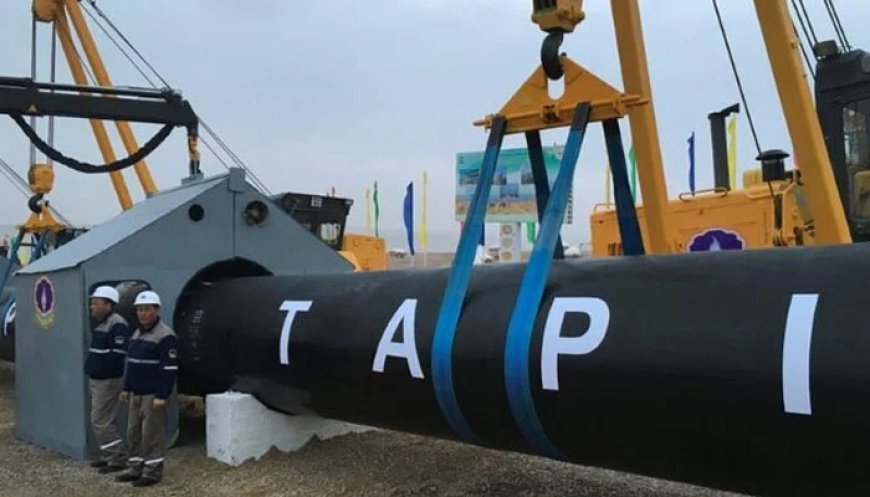TAPI gas project not sustainable for Pakistan if India opts out

1. "Without India, Pakistan would have to give a transit fee of $500 million per annum apart from gas price," say officials
ISLAMABAD: Pakistan's top officials are considering exiting the $10 billion, 1,849km Turkmenistan-Afghanistan-Pakistan-India (TAPI) gas pipeline project if India decides not to participate, sources say.
Without India, the project would become TAP, which officials warn may not be financially sustainable for Pakistan. A senior Petroleum Division official recently informed the General Headquarters (GHQ) that India’s interest in the project remains "extremely lukewarm." Without India’s involvement, Pakistan would need to pay a transit fee of $500 million annually in addition to a gas price of $7.5 per mmbtu, making the project costly.
The gas price from Turkmenistan would likely exceed the cost of RLNG, with Pakistan potentially facing a $5 billion annual bill—an unsustainable scenario. Energy officials noted that if India participates, Pakistan could receive $700-800 million annually in transit fees from India, making the project more affordable. In this setup, India would pay transit fees to both Afghanistan and Pakistan, while Pakistan would benefit from a reduced gas cost.
The TAPI pipeline aims to bring natural gas from Turkmenistan’s Galkynysh field to Afghanistan, Pakistan, and India. The 56-inch diameter pipeline is designed to transport 33 billion cubic meters of gas annually over 30 years, with Pakistan and India each receiving 1.35 billion cubic feet per day (bcfd), and Afghanistan receiving 500 million cubic feet per day (mmcfd). The pipeline would pass from Afghanistan’s Herat and Kandahar to Pakistan’s Chaman, Zhob, DG Khan, and Multan, ultimately reaching Fazilka at the Pakistan-India border.
Turkmenistan holds an 85% stake in the project, while Afghanistan, Pakistan, and India each hold 5%. Although India hasn’t fully withdrawn from the project, it has been non-committal due to security risks and the political situation in Afghanistan and Pakistan. India had previously exited the IPI pipeline project in exchange for a favorable energy package from the U.S.
Pakistan’s gas consumption has been declining by 150 mmcfd per month, and issues with unused imported gas have put its national gas transmission system under pressure. Pakistan currently imports 10 LNG cargoes monthly, but often fails to utilize the entire supply. As a result, Pakistan has asked Qatar to delay five LNG cargoes scheduled for 2025 until 2026. Officials are also exploring options to shelve the import of 13 additional LNG cargoes planned for 2025.
Without India, the TAP (Turkmenistan-Afghanistan-Pakistan) gas pipeline is unlikely to be sustainable for Pakistan, as its gas would be more costly than RLNG. Additionally, despite an October 2023 deadline, Turkmenistan has not achieved full financial closure for the TAPI pipeline due to challenges like security concerns, funding issues, and regional tensions.
For India, the TAPI project is a major infrastructure investment, but its participation is uncertain due to long-term stability concerns in Afghanistan and Pakistan. India has increasingly focused on alternative energy options, including LNG imports, renewables, and other regional energy corridors, which may reduce its need for TAPI.
In response to Turkmenistan’s request for legislative protection under Pakistan’s Foreign Investment Promotion and Protection Act (FIPPA) 2022, Pakistan declined, as Afghanistan and India did not offer similar guarantees. However, Pakistan has assured Turkmenistan that it will safeguard its investment with a sovereign guarantee through the Host Government Agreement (HGA).


















































